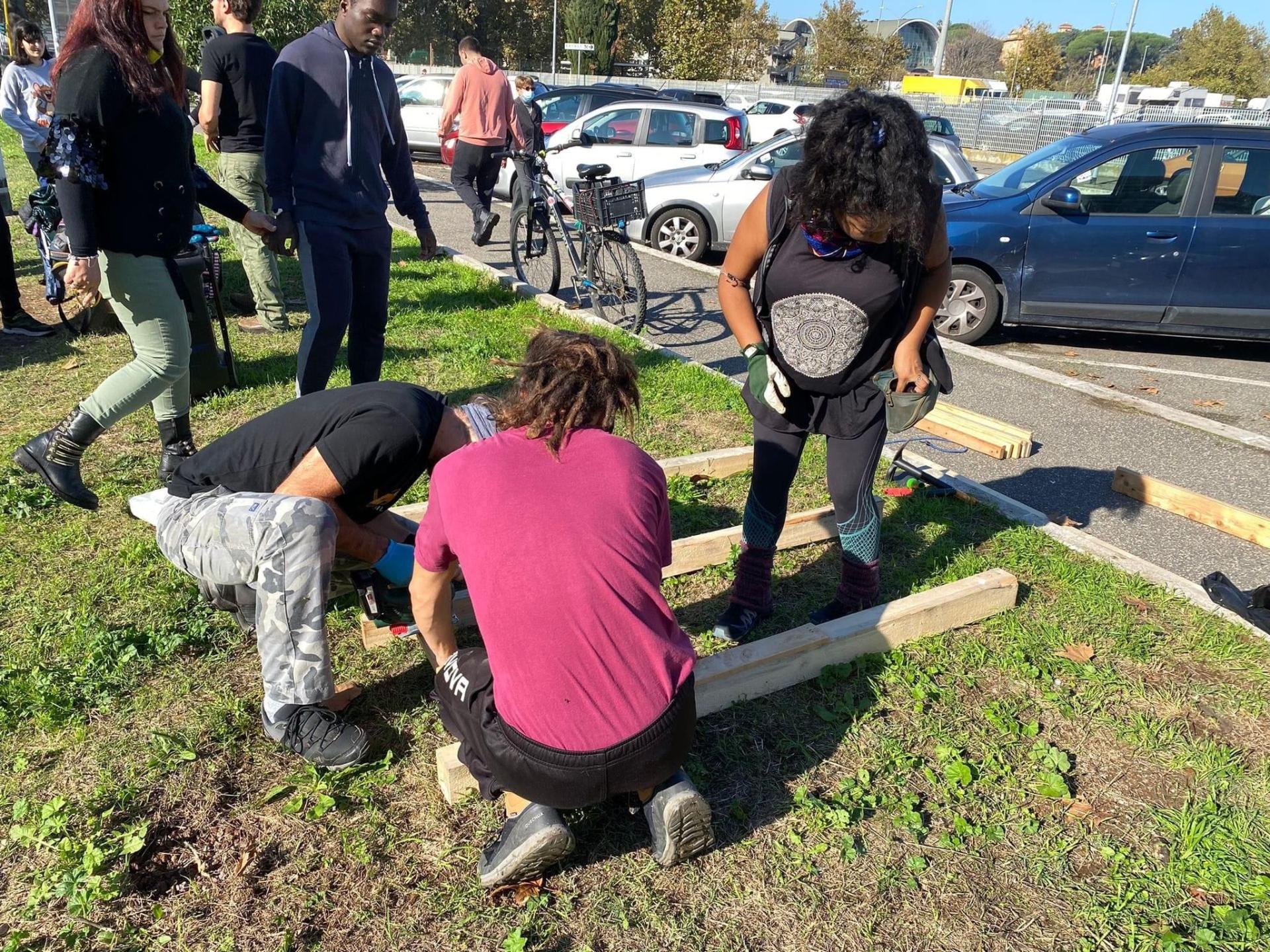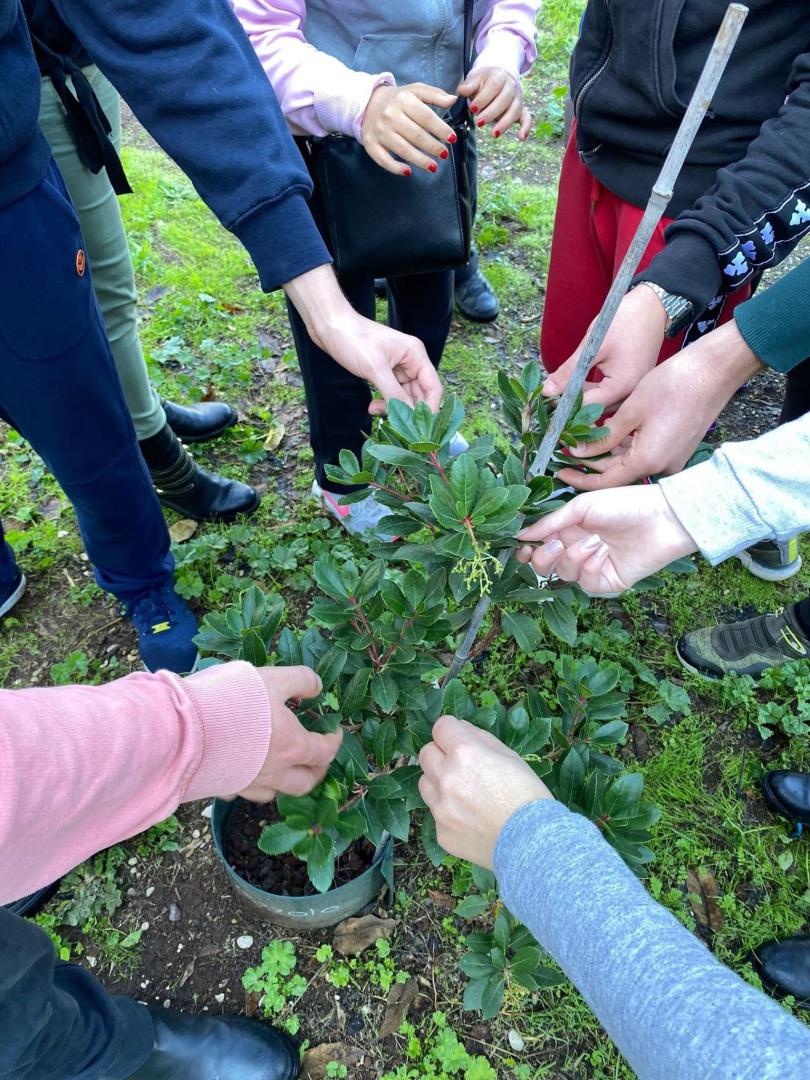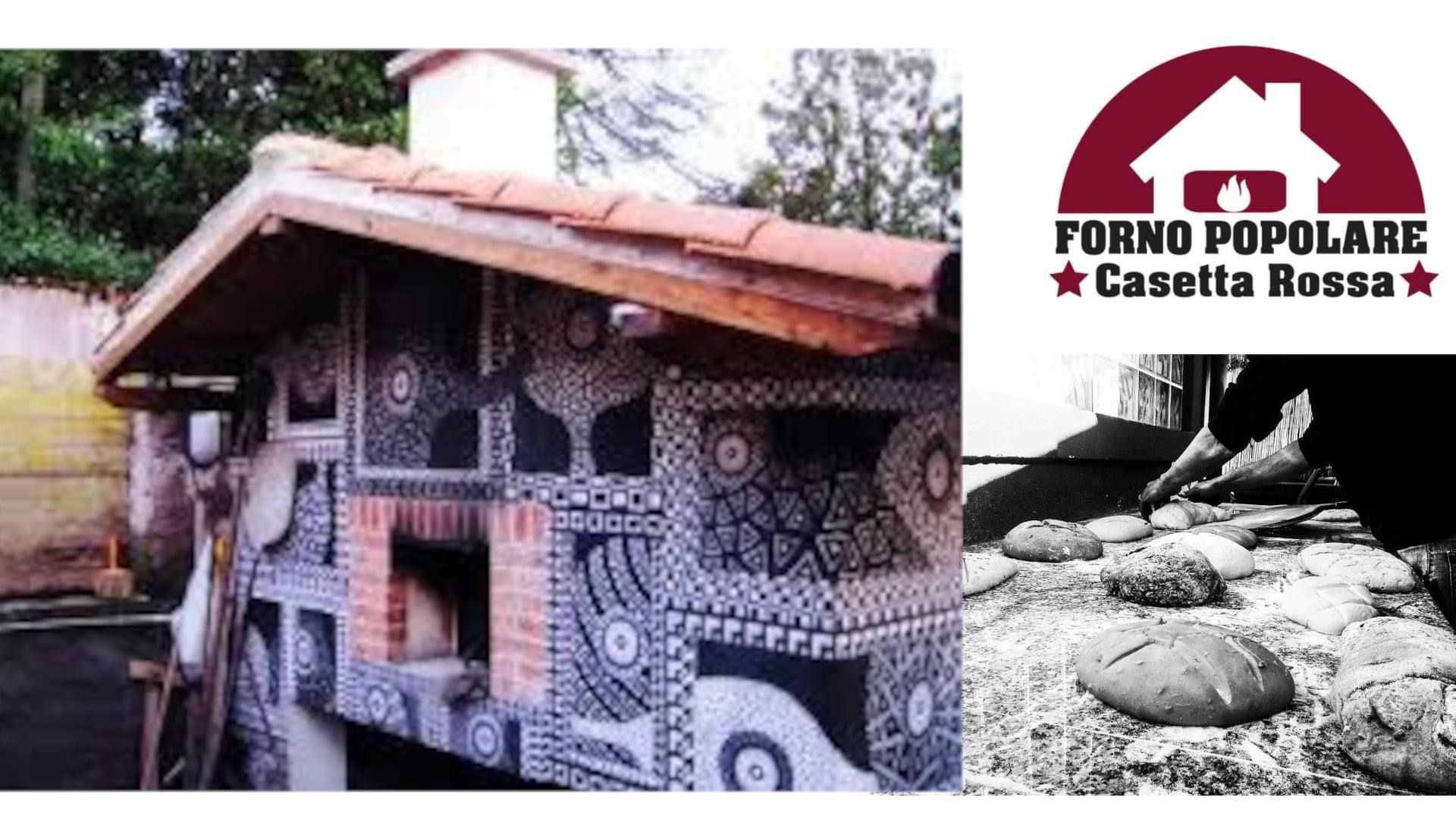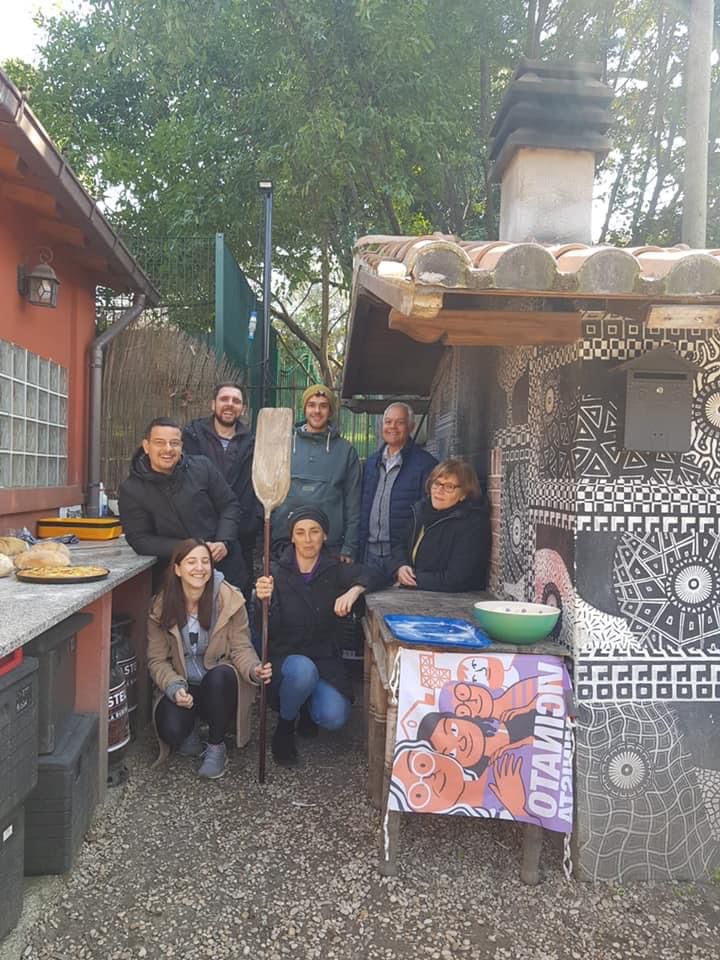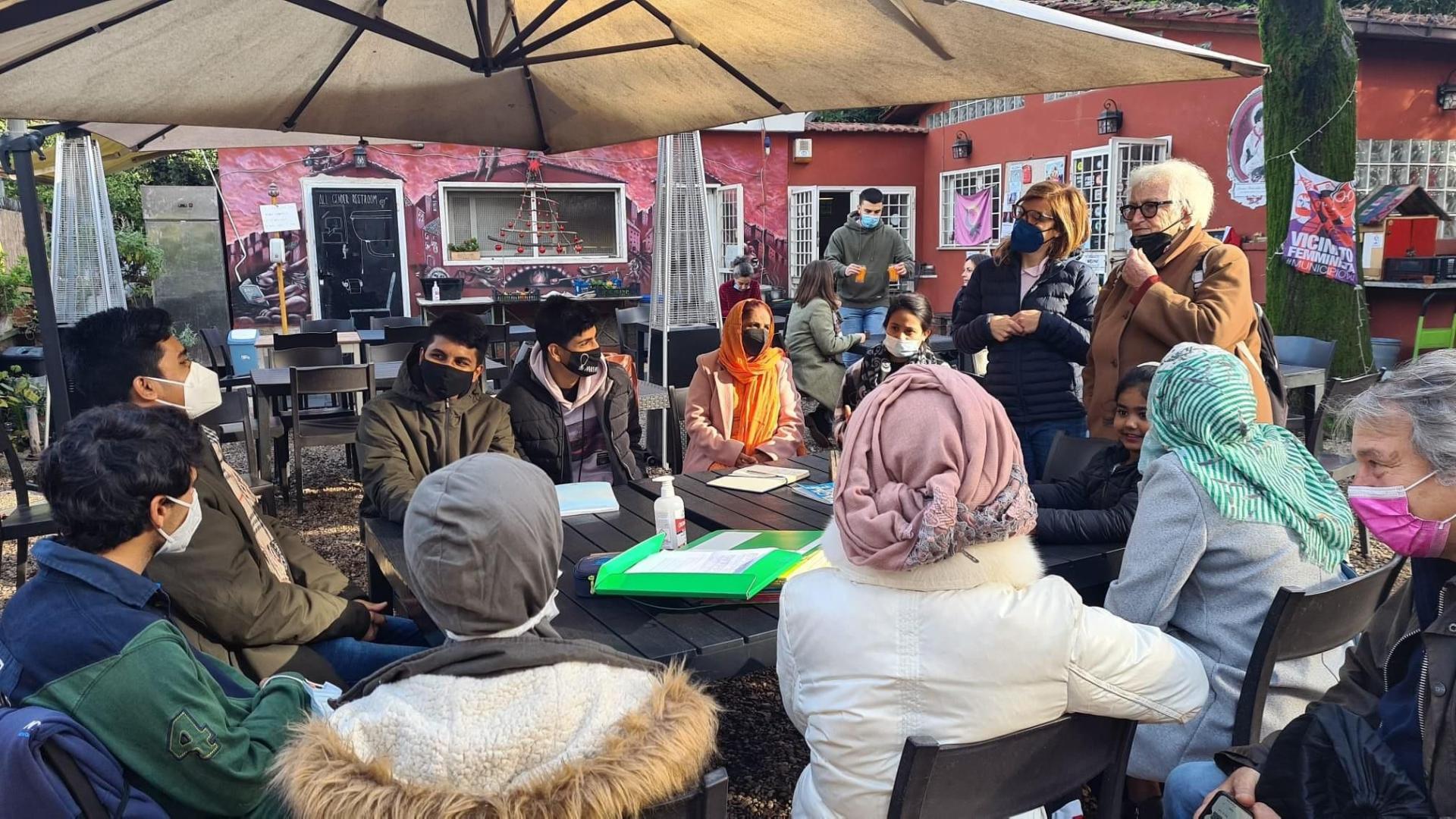Casetta Rossa Spa
Basic information
Project Title
Full project title
Category
Project Description
Casetta Rossa is a small space recovered in a public park, multiplier of dreams and projects for citizenship.
This is where inclusion and the search for a new model of sustainable development are practiced through concrete actions and sharing.
Geographical Scope
Project Region
Urban or rural issues
Physical or other transformations
EU Programme or fund
Which funds
Description of the project
Summary
Casetta Rossa is a self-managed social space that promotes free political, social and cultural initiatives through activism and voluntary contribution, because the main objective is the sharing and participation of the community. The idea was born from a group of young people and families from the area who decided to take care of the public garden in which the headquarters are located; being inside a public place has allowed to involve more and more families and people in the care of the park and in the planning of activities. Over the years, both the Casetta Rossa as a space and the park have become a reference point for the area, where you can experience participation and sharing. It is a community welfare model and offers free work-life balance services, supporting mutual help, self-management and self-organization of people through participatory processes and care for the territory.
Key objectives for sustainability
Casetta Rossa hosts the biggest Purchasing Group Solidarity in Rome. More than 100 families decided to pursue a sustainable lifestyle with the aim of reducing waste and pollution, protecting the environment and promoting local production. In addition to that, "Casetta Verde" the green branch of CR, active in the city council local board on food policies, adopted an adjacent green area and promotes cleaning up week-ends, planting trees, mowing and sustainable mobility information days. A pick-up point collects obsolete devices in order to re-generate them and distribute them to people in need, and a Waste Oil Bin is located at the entrance. Casetta Rossa was awarded with the first and second prize at the Mobilithon Challenge featuring an application for nature lovers and a local campaign on air pollution. Since the beginning Casetta Rossa has had a green attitude: 'totallly plastic free', eco-compostable dishes and tableware, anti-water waste system that stops the water when running for too long, as well as the lights are automatically turned off when not in use. Once in a month a big swap meet is held in the park in order to avoid waste and promote reusing and recycling.
Key objectives for aesthetics and quality
The choice of proposing events with a high artistic value that can be used free of charge has allowed the Casetta Rossa to reach a varied audience both in terms of personal and socio-economic characteristics. The proposal of multiple and daily activities have instead made it possible to retain the loyalty of the people who approach the Casetta Rossa experience, fostering a sense of belonging and a spontaneous activation in taking care of the space and giving willingness to support the various projects.
Key objectives for inclusion
Grasp the emerging needs of the community;
Research and propose fast and innovative responses to needs within the community itself;
Increase the sense of belonging and care of the community;
be a participation accelerator;
multiply good self-governance and regeneration practices.
Thanks to the territorial roots acquired in 20 years of activity, the Casetta manages to be a good observation point to grasp the emerging needs of the community and to provide new and innovative answers to these needs in a short time in a continuous network process of exchange and sharing.
The authority built over the years also allows the Casetta to be recognized by the institutions as the bearer and interpreter of the needs of the community, also nurturing good practices of dialogue with local institutions.
The low threshold of access to the Casetta projects, linked to the free activities, the variety of proposals, the inclusive practices and the location of the Casetta in a park in the center of the neighborhood make the Casetta a natural public square, fulcrum and multiplier of projects of redevelopment even beyond its natural borders.
Results in relation to category
Over the years the citizens involved and reached in the Casetta projects have steadily increased, going from about 10 active volunteers to the current 500 who manage to reach and involve the entire local population. The Casetta Rossa is now a point of reference, mentioned in tourist guides and in local history books.
This resulted
an increase in the dissemination of inclusive, ecological conversion and regeneration messages carried out through the various projects;
the construction of a very dense territorial solidarity network capable of directing public policies on issues of their own interest; the ability to see some of his projects re-proposed in other neighboring territories.
For example, new solidarity buying groups have emerged around Gas di Casetta Rossa, the adoption and care of small public parks / shared green areas has also become common practice for other municipal green areas; Casetta Rossa is increasingly invited to narrate its overall project also in the academic field through interviews / questionnaires or participation in conferences and seminars.
The high degree of participation and the sharing of different and interconnected interests make citizens very involved and "engaged" with respect to what happens at the Casetta Rossa, developing a sense of belonging to the community and a widespread responsibility towards the common goods. This feeds a virtuous circle of care and attention that also has repercussions on the other territorial public spaces
How Citizens benefit
Casetta Rossa was born as a response of citizens to the need for participation and re-appropriation of public space. This intrinsic characteristic makes it a permanent laboratory of participatory planning. The constant increase of citizens and townspeople involved in the activities and in the management of space have made it necessary to organize a network and thematic groups. These groups are open and give everyone the right to speak, they meet once a month in the presence or using the new technologies and social tools and provide for a constant exchange of information. Every two months, public assemblies are held to tell each other about the work done, propose new projects and find synergies between the various areas of the Casetta Rossa.
Two real notice boards positioned in the park, social channels and a weekly newsletter allow you to constantly tell the activities and mission of the Casetta Rossa and to receive feedback and new proposals from the town
Physical or other transformations
Innovative character
The Casetta Rossa project brings together different and interconnected projects that have as a common feature that of starting from the resources and potential of people and putting them in contact. Casetta Rossa represents an example of community welfare that is built starting from sharing the care of public space. Taking care of the space together to get to know each other and take care of ourselves and the others around us. A winning synergy, aimed at promoting the culture of mutual help and of communities understood as educating communities. By activating a participatory process, involving a significant number of people in socialization and volunteering activities. Building a new local welfare of proximity, promoting the community to take charge of the various weaknesses present in it.
Learning transferred to other parties
Casetta Rossa is an open and continuous workshop. In the past years students coming from abroad came to visit and get in touch with this unique reality. Not just an association nor a public neither a private place, Casetta Rossa is the combination of theories and practices related to systemic change: by taking care of a public park, offering a cultural program addressed to children and adults, promoting debates about current events or specific topics such as human rights, sustainable development, urban changes CR reaches the people by involving them actively. Every month a public assemblee is held in the park, citizens are encouraged to share opinions and ideas about local changes by an appointed moderator. Each decision must be voted and registered by the secretary. Children are part of the process by proposing ideas and designing their own space.

